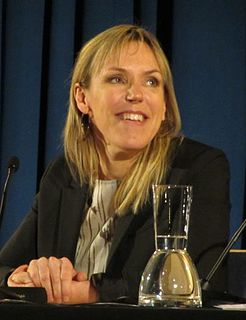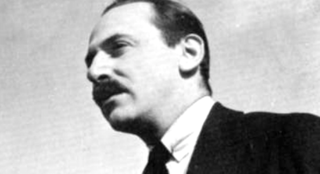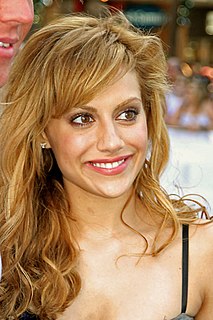A Quote by Andre Alexis
The book it reminded me of most is Henry Miller’s The Books in My Life. Like Miller, Shields manages to convey his affection for and admiration of literature, and that, the enthusiasm and admiration, can revitalize the reader’s love for the art form. I’m grateful for How Literature Saved My Life because the book has made me think again – and for the first time in a while – 'Well, what is it we do when we read?' It’s a damned annoying question, but it needs to be asked now and then, and Shields has asked it in a way I find resonant and moving.
Quote Topics
Admiration
Affection
Again
Annoying
Art
Art Form
Asked
Because
Book
Books
Convey
Enthusiasm
Find
First
First Time
Form
Grateful
Henry
His
How
Life
Like
Literature
Love
Made
Me
Miller
Most
Moving
My Life
Needs
Now
Now And Then
Question
Read
Reader
Reminded
Saved
Shields
Then
Think
Time
Way
Well
While
Related Quotes
My father read Günter Grass. He introduced me to German literature. I believe the first book I read by a German author was from Grass. After that, Thomas Mann accompanied me for a few years during my literature studies. I tried again and again to read the original German text, but I never really succeeded.
What's your favorite book?' is a question that is usually only asked by children and banking identity-verification services--and favorite isn't, anyway, the right word to describe the relationship a reader has with a particularly cherished book. Most serious readers can point to one book that has a place in their life like the one that 'Middlemarch' has in mine.
I think Twitter is the literature of the 21st century. I think it's an incredible art because when you make a book, you don't know who reads it. But every line, I write a million people, they read it, and then they insult me, they love me, they discuss, they give an opinion instantly, immediately. They are completely in communication, immediately. That is a real art.
You once said to me that I talk like a man in a book. I not only talk, but think and feel like one. I have spent my life in books; literature has deeply dyed my brain its own colour. This literary colouring is a protective one--like the brown of the rabbit or the checks of the quail--making it impossible for me to tell where literature ends and I begin.
For the judging of contemporary literature the only test is one's personal taste. If you much like a new book, you must call it literature even though you find no other soul to agree with you, and if you dislike a book you must declare that it is not literature though a million voices should shout you that you are wrong. The ultimate decision will be made by Time.
I got a phone call from George Miller [the director] asking me to play this role. We sat down and he showed me on his computer a documentary-type montage sequence of real penguins swimming, in an Esther Williams synchronized sort of way, and doing things I have never seen them do. Then he explained his vision of the film, asked me to read the script and to voice the character. I was cast a little bit later, and he let me do the singing as well!
All good writers inspire me as I have never thought I was any good. As far as a writer who made me think I could do it, it was Henry Miller. Not because I thought he was so simple that I reckoned I could pull it off as well, but it was his freedom and guts that really moved me to want to write all the time.
You have read very good books, I am sure; there is an excellent book however, that never grows old; it is the one that God has written on every plant, on every grain of sand, in yourself; it is the book of Divine love. Give, therefore, your preference to that beautiful book and add to it a few pages of admiration and gratefulness. Read and understand all other books in the light of this one.
I want to show you how Stephen Miller is just good, folks. He's simply good. He needs to be doing more of these. The first time he went public as a spokesman for Donald Trump was on This Week with George Stephanopoulos. Stephen Miller was unflappable. He didn't lose his temper. He smiled. It appeared that Miller knew he was talking with somebody who didn't know what he was talking about and remained composed and polite.
There are three infallible ways of pleasing an author, and the three form a rising scale of compliment: 1, to tell him you have read one of his books; 2, to tell him you have read all of his books; 3, to ask him to let you read the manuscript of his forthcoming book. No. 1 admits you to his respect; No. 2 admits you to his admiration; No. 3 carries you clear into his heart.
To be honest, there are parts of 'How Literature Saved My Life' that began as interviews. Someone was telling me that they think the book sounds very phonic: that it sounds like me speaking. And I don't think it's a coincidence that there are six to ten passages that I cadged from various interviews that I did post-'Reality Hunger'.
Don't cry." "How can I not?" I asked him. "You just said you loved me." "Well, why else did you think all of this was happening?" He set the book aside to wrap his arms around me. "The Furies wouldn't be trying to kill you if I didn't love you." "I didn't know," I said. Tears were trickling down my cheeks, but I did nothing to try to stop them. His shirt was absorving most of them. "You never said anything about it. Every time I saw you, you just acted so... wild." "How was I supposed to act?" he asked. "You kept doing things like throwing tea in my face.




































